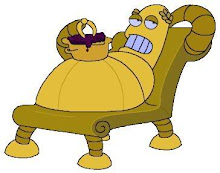
In China some Chinese community party veterans, spread a letter in which they challenged to stop the censorship, and to promote freedom of speech. In their letter they said "This false democracy of formal avowal and concrete denial has become a scandalous mark on the history of world democracy". This was raised in addition to the petition of releasing to Xie Chaoping, who is a writer imprisoned by denouncing corruption. In addition, they expressed their repudiation against the government decision of denying bringing the 2010’s Nobel Prize to Liu Xiaobo, who was arrested after he wrote a document calling for freedom of expression and political reforms.
The Central Propaganda Department removed the letter from the website, and veterans said that tomorrow they will present a more formal letter, with 500 signatures.
Nicholas Bequelin, Asia researcher at Human Rights Watch, considered that this action expressed the dissatisfaction towards the party’s hardliner politics. However, he emphasized about that this was not a political dispute between conservatives and reformers, but between some pragmatic positions and hardliners.
Xiao Mo said that promoting the freedom of speech by the government doesn’t represent an expensive policy. He said that China had experienced some changes since Mao Zedong’s times, when nobody could express publicly their disagreement without being at risk of being killed and persecuted. However, he recognized that the censorship was being stricter last years. He criticized the idea of the government of censoring to the dissident's opinions , using the “maintaining stability” idea as an excuse and ignoring some aspects of their own constitution.
The Central Propaganda Department removed the letter from the website, and veterans said that tomorrow they will present a more formal letter, with 500 signatures.
Nicholas Bequelin, Asia researcher at Human Rights Watch, considered that this action expressed the dissatisfaction towards the party’s hardliner politics. However, he emphasized about that this was not a political dispute between conservatives and reformers, but between some pragmatic positions and hardliners.
Xiao Mo said that promoting the freedom of speech by the government doesn’t represent an expensive policy. He said that China had experienced some changes since Mao Zedong’s times, when nobody could express publicly their disagreement without being at risk of being killed and persecuted. However, he recognized that the censorship was being stricter last years. He criticized the idea of the government of censoring to the dissident's opinions , using the “maintaining stability” idea as an excuse and ignoring some aspects of their own constitution.

